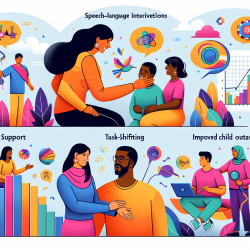Introduction
Suicide is a leading cause of death among adolescents, and its rates have been increasing over the years. For Hispanic adolescents, the risk factors and protective measures can differ significantly from their non-Hispanic peers. A recent study published in the International Journal of Environmental Research and Public Health titled "Positive Relationships with Adults and Resilience to Suicide Attempt among New Mexico Hispanic Adolescents" provides valuable insights into how positive relationships with adults can significantly reduce the risk of suicide attempts among Hispanic teenagers in New Mexico.
Key Findings from the Study
The study analyzed data from the 2019 New Mexico Youth Risk and Resiliency Survey to understand the impact of adult relationships on suicide attempts among Hispanic adolescents. It was found that positive relationships with adults at home and in the community decreased the probability of suicide attempts by 37–54%. Additionally, involvement in community organizations and hobbies showed varied effects based on gender.
- Positive relationships with adults in the home and community were strongly protective against suicide attempts.
- Community involvement and hobbies had different impacts on males and females.
- Supportive relationships with same-age friends also contributed to reduced suicide attempts.
Implications for Practitioners
For practitioners working with Hispanic adolescents, these findings emphasize the importance of fostering positive adult relationships both at home and in the community. Here are some actionable steps practitioners can take:
- Encourage family-based interventions that focus on improving parent-adolescent communication and support.
- Develop community programs that engage supportive adults and provide mentorship opportunities for adolescents.
- Promote extracurricular activities that foster community involvement and personal interests.
Encouraging Further Research
While this study provides crucial insights, further research is needed to explore the nuances of these relationships and their impact on different subgroups within the Hispanic adolescent population. Future studies could investigate the role of cultural factors, such as ethnic identity and acculturation, in shaping these relationships and their protective effects.
Conclusion
Positive relationships with adults are a critical factor in reducing suicide attempts among Hispanic adolescents. By focusing on building these relationships, practitioners can play a pivotal role in enhancing the resilience of these young individuals. For those interested in delving deeper into this research, please refer to the original study: "Positive Relationships with Adults and Resilience to Suicide Attempt among New Mexico Hispanic Adolescents".










